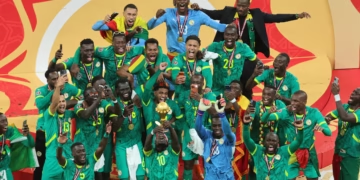Accra, Sept 10 (The African Portal) – The future of Ghana’s third-largest telecom operator, AT (formerly AirtelTigo), hangs in the balance as a surprise $150 million revival plan from a Canadian firm directly challenges a government-engineered merger with Telecel Ghana. The competing proposals have thrown the fate of the debt-ridden, state-owned telco into uncertainty, creating a high-stakes decision for the government that will shape the nation’s telecommunications landscape for years to come.
Just as the government began consolidating AT with Telecel to create a stronger competitor to the dominant MTN, Canadian conglomerate Rektron Group Incorporated has forcefully reasserted its own bid to save the ailing operator. Rektron proposes to acquire a 60% controlling stake in AT for $150 million, a plan anchored by a Memorandum of Understanding (MoU) signed with the Government of Ghana on May 21, 2025.
Rektron, in partnership with local firm Afritel Ghana Limited, promises not just a cash injection but a “meticulously structured, financially robust, and independently validated blueprint” to stabilize and modernize AT. The Canadian firm has pledged to clear operational debts, upgrade the network’s infrastructure with Tier-1 technology vendors, and crucially, retain all of AT Ghana’s staff. Rektron’s CEO, Atanas Kolarov, emphasized the bid is “not a speculative initiative” and stated the company has already opened constructive negotiations with AT’s creditors, who are reportedly eager to collaborate.
This unsolicited offer complicates the government’s recent, urgent moves to merge AT with Telecel Ghana. Citing AT’s dire financial state—with losses exceeding $10 million in the first eight months of 2025—the Ministry of Communications initiated what it has termed a “restructuring” to prevent the company’s collapse. The crisis reached a tipping point on September 1, 2025, when tower operator American Tower Corporation (ATC) began disconnecting power to AT’s sites over unpaid debts, threatening to cut off service for over three million subscribers.
To avert a national crisis, the government directed an emergency migration of all AT traffic onto Telecel’s network, a process described as “98% smooth.” Minister for Communication, Digital Technology and Innovations, Samuel Nartey George, has assured AT’s 300 permanent employees that their jobs are secure under the Telecel plan.
Two Paths, One Future: A Critical Choice
The government now faces a critical decision between two vastly different solutions for AT: The Rektron Proposal: A strategic partnership involving a significant foreign direct investment aimed at reviving AT as an independent competitor. This plan promises an immediate capital injection of $150 million to tackle debt and fund technological upgrades, including a focus on expanding digital access to underserved areas. Proponents argue this would maintain three major players in the market, fostering greater competition.
The Telecel Merger: A government-led consolidation to create a stronger second operator. This move would combine AT’s subscriber base with Telecel’s, creating an entity with an estimated 26% market share, still significantly behind MTN’s commanding lead. The government has projected a need for $600 million over four years to sustain the merged entity, with funds expected from spectrum sales and private investment.
Options and Critique: A High-Stakes Dilemma
The sudden emergence of Rektron’s bid has turned a seemingly settled affair into a competitive bidding war, forcing a pause and re-evaluation. The government has appointed KPMG as a transaction advisor with a strict 60-day deadline to assess the situation and recommend the best path forward for AT.
Several scenarios could unfold:
1. Government Pivots to Rektron: If Rektron’s offer is deemed more financially sound and strategically advantageous, the government could abandon the Telecel merger. This would inject immediate private capital into AT but could lead to legal challenges from Telecel, which has already invested in the merger process. The credibility and telecom experience of Rektron will face intense scrutiny.
2. Telecel Merger Proceeds: The government may be contractually or strategically bound to the Telecel deal, viewing it as a more certain path with a known regional operator. This would reduce the number of major network operators from three to two, a move that critics fear could lessen competition in the long run.
3. A Hybrid Agreement: A complex but potentially powerful outcome could involve a tripartite negotiation where Rektron invests in the newly merged Telecel-AT entity. This could combine Telecel’s operational expertise with Rektron’s capital and tech-focused vision, creating a truly formidable competitor to MTN. However, aligning the visions of three major stakeholders would be an immense challenge.
The final decision will rest on a careful weighing of legal obligations, regulatory mandates, and the long-term strategic goals for Ghana’s digital economy. The National Communications Authority (NCA) will play a crucial role in determining which proposal best serves the national interest and protects consumers. For now, the future of AT Ghana and the structure of the nation’s telecom market remain in a state of flux, with all eyes on the government’s next move.






